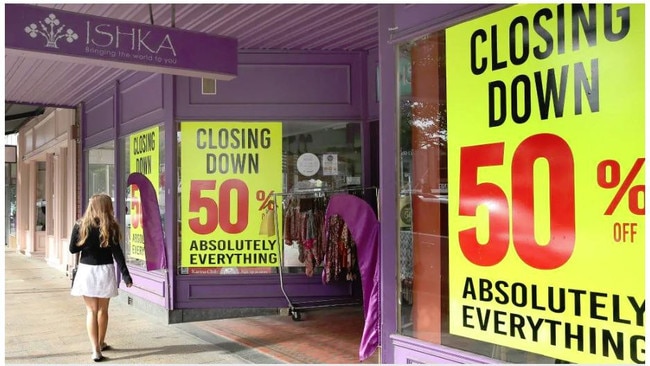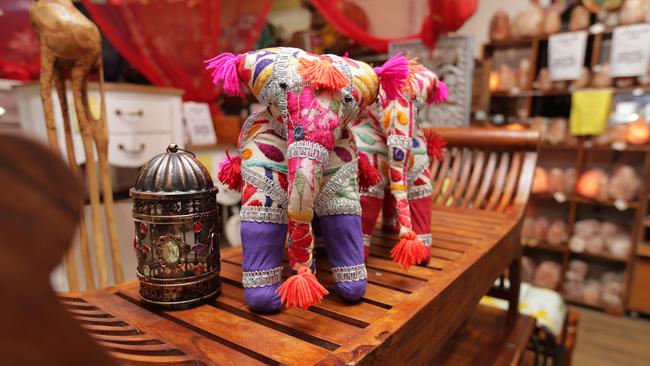What led to Ishka’s shock retail collapse
A Victorian homewares giant is the latest victim of Australia’s brutal retail crisis, with the popular brand facing ruin after announcing its shock collapse this week. And a string of “biblical” catastrophes are to blame.

Business
Don't miss out on the headlines from Business. Followed categories will be added to My News.
Retail giant Ishka has announced it is going into voluntary administration, becoming the latest casualty of a slowing retail sector.
The exotic handicraft and homeware chain, which was started in a small Glen Iris workshop in 1971, has more than 60 stores in Australia — 15 of which are in regional areas — employingmore than 450 staff.
Owner of the family retail chain, Toby Darvall, said the “heartbreaking decision” has been made after a catastrophic summer and Christmas period.
“Ishka is actually one of Australia’s oldest private retail companies, we’ve been here longer than JB Hi-Fi, longer than McDonald’s … and we’ve never seen conditions like this before,“ Mr Darvall said.
A contributing factor to the business’s struggles was delays in getting $3 million dollars of Christmas stock into stores, due to tightening quarantine restrictions.
“It has been a devastating 24 hours for us. We came into December actually trading really strongly and looking really good so we were quite excited about Christmas,” he told news.com.au.
“We had a good digital week in November and Black Friday and Cyber Monday went crazy.
“But unfortunately in late November, quarantine seized 32 components of Christmas stock.
“Normally that would be released quite quickly … but a week later it hadn’t arrived, and then a week after that we were starting to get concerned, and then another week later in mid-December I thought, ‘my God, we’re not going to get our Christmas stock’.”
The crucial items didn’t arrive until late January, which meant the store missed the vital holiday trade period.
The disaster occurred because the person responsible for fumigating the stock overseas before it departed for Australia lost their certificate, meaning the goods had to be treated again upon arrival on home soil, which created a backlog.

Then, the bushfires crisis hit, along with other recent extreme weather events affecting large parts of the country including the drought, floods and hailstorms followed by the coronavirus, which Mr Darvall said created a “perfect storm” which battered the already-fragile retail sector.
“We were hit from all angles — we met with the experts and the accountants in mid-January to ask what we could do and what options we had but it became pretty clear we didn’t have any,” he said.
“I started my first business at 19 and have seen the highs and lows but this is way off the scale and I’ve never seen anything like it – it’s almost at biblical proportions, with fires, droughts, storms, floods and then a virus – who would have thought that would happen?”
All Ishka stores are expected to remain open at this stage, but Mr Darvall said he didn’t know what would happen beyond the next two weeks.
“We want our staff, makers and suppliers to know that they will be paid regardless of the outcome. They are our number one priority,” he said.
MORE NEWS
ANOTHER STAFFER STEPS ASIDE AMID ST KEVIN’S SCANDAL
HEARTBREAK OVER MID-AIR COLLISION PILOTS’ DEATHS
The chain is the latest in a series of household-name retailers to struggle, including Jeans West and David Jones.
Executive director of the Australian Retailers Association Russell Zimmerman said nationally the sector had been hit by a multitude of factors including drought, bushfires and the coronavirus outbreak, as well as high rents.
“Seeing this company go through difficulty which has been trading for over 50 years.. it’s devastating to see this happening,” Mr Zimmerman said.
“The largest concern of the association across Australia is the loss of jobs in the industry.”
Rachel Burdett of Cor Cordis has been appointed as administrator and will meet with creditors within a week.
— with Alexis Carey
